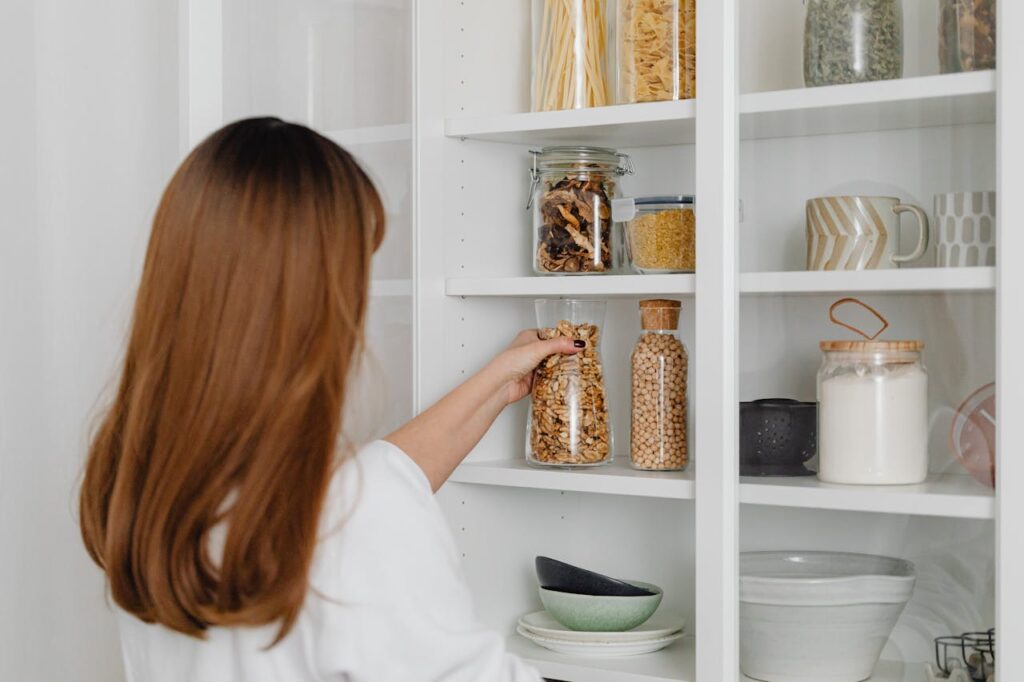
Written by Lucy Ko
1. Physical Clutter
I’ve always loved clothes. Growing up, shopping was a regular weekend activity with my mom or friends, and I rarely went a week without adding something new to my wardrobe. But when COVID hit, my love for shopping turned into a full-blown habit. I bought so many clothes that, if you stacked them up, they’d probably match my height of 5’9”.
Looking back, it’s hard to believe how little I actually wore most of them. I’d guess only 10% of what I bought ever saw the light of day. The rest just piled up in my room, creating a mess that stressed me out every time I looked at it. Eventually, I had enough. I decided to sell or donate about 90% of what I owned, and once all that clutter was gone, I felt a sense of relief I hadn’t felt in years. That was the moment I realized I wanted to pursue minimalism.
Since then, I’ve become much more intentional about what I bring into my life. Before buying anything, I ask myself: Do I already have something that can do the same job? Do I really need this? Will it actually bring me joy or serve a purpose? If the answer is no, I leave it behind. This approach has helped me break free from my old shopping habits. I shop much less now, and not only has this been great for my bank account, but it’s also allowed me to focus on what truly matters.
2. Digital Clutter
I’ll admit it — I used to be glued to my phone, and social media was a huge part of that. Back in high school, I’d spend at least five hours a day on my phone, and on weekends, that number could easily go up to seven or more. Instagram was my main distraction, but during my gap year after high school, I realized I wasn’t really using it to connect with anyone meaningful. Aside from a few close friends, I hardly talked to anyone there. On a whim, I decided to permanently delete my Instagram account.
Looking back, it was one of the best decisions I’ve ever made. Without Instagram, I had more time and mental space to focus on myself during my gap year, which helped me grow a lot as a person. I’ve since returned to Instagram, but I use it much more mindfully now. To keep myself from mindlessly scrolling, I only have the app on my iPad, not my phone.
I’ve also decluttered my digital life in other ways. I deleted old files and photos that no longer served a purpose or brought me joy. Now, it’s so much easier to find what’s important because everything unnecessary is gone. Letting go of digital clutter has been another step in focusing on what matters most.
3. Mind Clutter
If there’s one theme connecting everything, it’s this: Minimalism has helped me focus on what truly matters. In today’s world, staying focused is harder than ever. Ads try to sell you things you don’t need, news stories flood your feed with information you don’t care about, and distractions are everywhere.
Minimalism has taught me to be more thoughtful about what I let into my life — not just physical items, but also the content I consume and the thoughts I hold onto. It’s even helped me manage my emotions better. I’ve learned to let go of unnecessary worries and mental distractions, which has made my mind feel clearer and my days feel calmer. Meditation has been a big part of this journey, though that’s a topic I’ll save for another blog post.
If you’re curious about minimalism, I encourage you to give it a try. Remember, minimalism looks different for everyone. It’s not about getting rid of everything or achieving some perfect lifestyle. Instead, it’s a tool to help you focus on what’s most important to you and create a life that feels more intentional.
